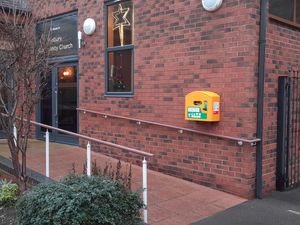Former leader of Dudley Central Mosque tells of strain of son being at heart of terrorism probe
The former leader of a Black Country mosque told today of the strain of his son being at the centre of a terrorism probe.
The 18 month long ordeal ended this week when Usman Choudhary was jailed for nine months but immediately freed because of the time spent in custody waiting for the case to be resolved.
His father Ghulam, the ex-chairman of Dudley Central Mosque, said: "Naturally this has been a terrible time for me as a parent and I am glad it is now all over."
The nightmare started in December 2013 when police raided the Terry Street, Dudley home of his 34-year-old son who had sent a copy of a terrorist book that encouraged the waging of holy war to a prisoner in a British jail who had converted to Islam and was allegedly being radicalised.
Officers discovered 500 letters that revealed Usman had been in correspondence with some of the world's most feared terrorists for three years and had the image of a beheaded man on his mobile phone.
He was held in custody for nine months before being released on bail pending completion of the case that ended at Kingston Crown Court when he admitted in sending the book he acted recklessly in a way that could have indirectly encouraged an act of terrorism.
It had been requested by the inmate and was intercepted by the prison authorities before he was able to look at it, the court was told.
Judge Peter Birts QC told Choudhary: "You have admitted that you were once obsessed with violent jihad and it is clear that you had many associations with persons later convicted of terrorist offences of the utmost seriousness. It is also clear from the voluminous material found in your bedroom that you had conducted extensive correspondence with such prisoners.
"However I do not have to deal with you for either this, however offensive it may be, or for your erstwhile belief in violent jihadism.
"People are not to be sentenced in this country for their beliefs, nor are they to be sentenced for what they say to one another in private or what they write in private. It is vitally important that such freedoms are safeguarded."
The judge said of Choudhary's decision to send the book to the prisoner: "Your conduct was reprehensible but was reckless rather than intentional. I accept that you are not somebody who would engage directly or indirectly in any act of terrorism yourself. It is said that you have learned your lesson from this case and I very much hope that to be the case."




